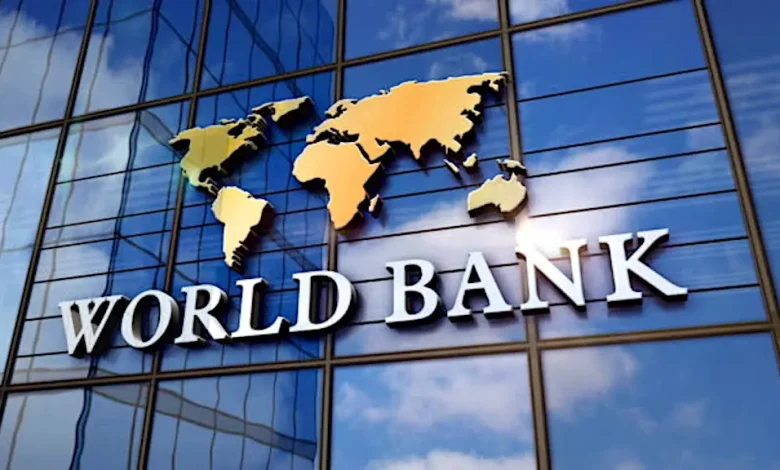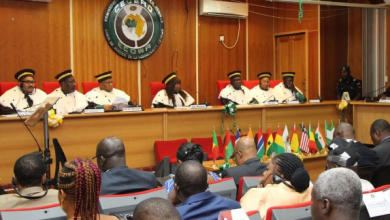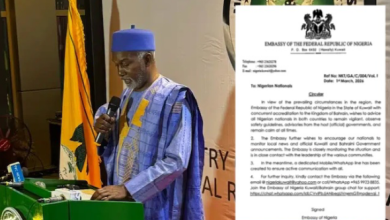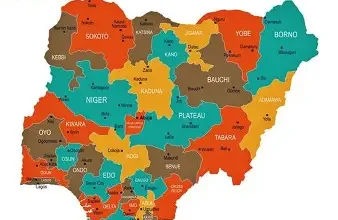Lead
Nigeria gets $300m World Bank loan for IDPs

The World Bank has approved a $300 million loan to support Internally Displaced Persons (IDPs) and their host communities in Northern Nigeria.
The funding will be used for the Solutions for the Internally Displaced and Host Communities Project (SOLID), aimed at enhancing access to essential services and economic opportunities for IDPs and host communities in selected local government areas.
A statement from the bank said that the new initiative would enhance access to essential services and economic opportunities for IDPs and host communities in selected local government areas in the troubled region.
The IDP crisis in northern Nigeria is one of the most pressing humanitarian challenges in the country, driven largely by a combination of armed conflict, banditry, and communal clashes, with the Boko Haram insurgency in the North-east serving as the single largest trigger.
For more than a decade, towns and villages in many states in the northern region have suffered repeated attacks, forcing millions to abandon their homes in search of safety.
In the North-west, rising bandit violence, kidnappings, and cattle rustling have displaced thousands more, while intermittent farmer–herder clashes in the Middle Belt have added to the numbers.
While these displacements often strip these victims of their livelihoods, property, and social support networks, many IDPs end up in overcrowded camps, makeshift shelters, or host communities ill-equipped to absorb the sudden influx.
Conditions in some of these camps are dire, with inadequate access to clean water, healthcare, education, and sanitation.
Also, malnutrition, disease outbreaks, and lack of schooling for children are persistent problems.
In these conditions, women and girls, in particular, face heightened risks of gender-based violence, exploitation, and early marriage.
But the World Bank explained in the statement that by adopting an integrated development strategy, the SOLID Project sought to help both IDPs and host communities move towards greater self-sufficiency and resilience, in line with Nigeria’s long-term development goals.
“Ongoing conflict and insecurity in Northern Nigeria have forced more than 3.5 million people from their homes, putting significant strain on local infrastructure in areas where IDPs have settled.
“The resulting population surge has led to limited access to services and increased vulnerability to natural disasters like flooding.
”Local governments are unable to fully address these challenges and meet the needs of both residents and displaced populations.
”This has led to competition for scarce resources and limited livelihood opportunities for all.
“The SOLID Project will build on previous efforts by the Nigerian government, international partners, and the earlier World Bank-supported Multi-Sectoral Crisis Recovery Project (MCRP), which focused on short-term emergency recovery,” the Bretton Woods institution stressed.
According to the global financial institution, key priorities for the project include: Developing and maintaining climate-resilient infrastructure as well as promoting social cohesion and community resilience through participatory development planning, economic cooperatives, and the integration of IDPs.
The statement explained that the programme will support livelihoods to help both IDPs and local residents initiate and sustain new economic activities as well as strengthening institutions to better respond to demographic changes caused by forced displacement.
Speaking on the initiative, World Bank Country Director for Nigeria, Mathew Verghis, emphasised that the project has the potential to help Nigeria in addressing development challenges associated with protracted displacement in a sustainable way.
He said: “We are glad to support this initiative which has a tremendous potential to help Nigeria in addressing development challenges associated with protracted displacement in a sustainable way.
“The Project’s integrated approach which is aligned with the National IDP Policy and the FGN’s long-term development vision will ensure that IDPs and host communities can transition from dependency on humanitarian assistance to self-reliance and resilience which will open up better economic opportunities.”
The the bank noted that the SOLID Project is expected to benefit up to 7.4 million people, of which up to 1.3 million individuals are identified as IDPs.
The project would l be implemented through a coordinated, community-driven approach involving all tiers of government, with strong partnerships from international stakeholders.
By bridging the gap between emergency relief and long-term development, SOLID, the World Bank said, aimed to help Northern Nigeria transition from crisis response to stability, resilience, and inclusive growth.
“This operation is central to tackling the enduring displacement crisis in Northern Nigeria. It reflects the urgency of addressing infrastructure gaps and service delivery challenges in host communities that were already strained before the influx of displaced populations.
“It will provide targeted livelihood support to help both displaced and host populations achieve sustainable economic outcomes,” said Task Team Leaders for SOLID, Fuad Malkawi and Christopher Johnson.
The Nigerian government, in collaboration with humanitarian agencies, has made efforts to provide relief, including food distribution, temporary housing, and medical care, although insecurity often restricts aid workers’ access to remote areas, and funding gaps limit the scale and consistency of assistance.
In the same vein, resettlement and reintegration plans have faced delays, as many communities remain unsafe or destroyed.



